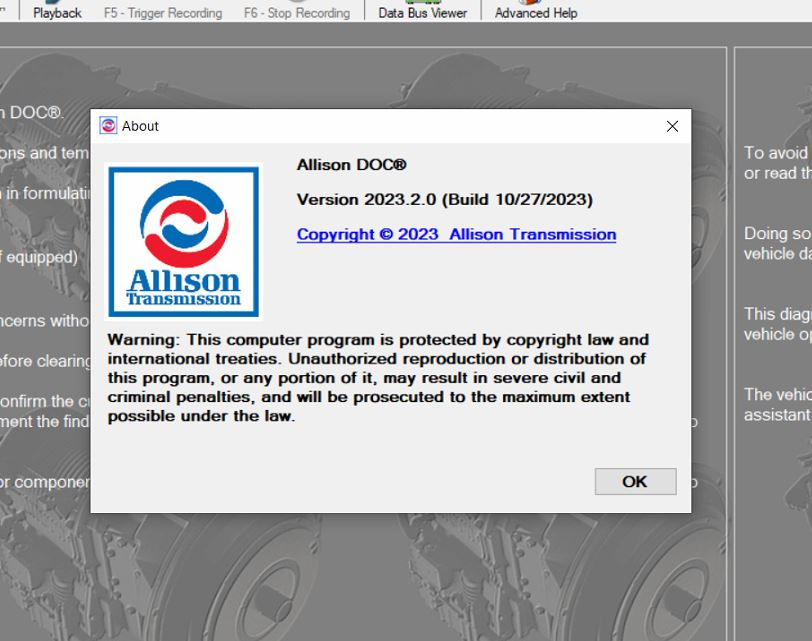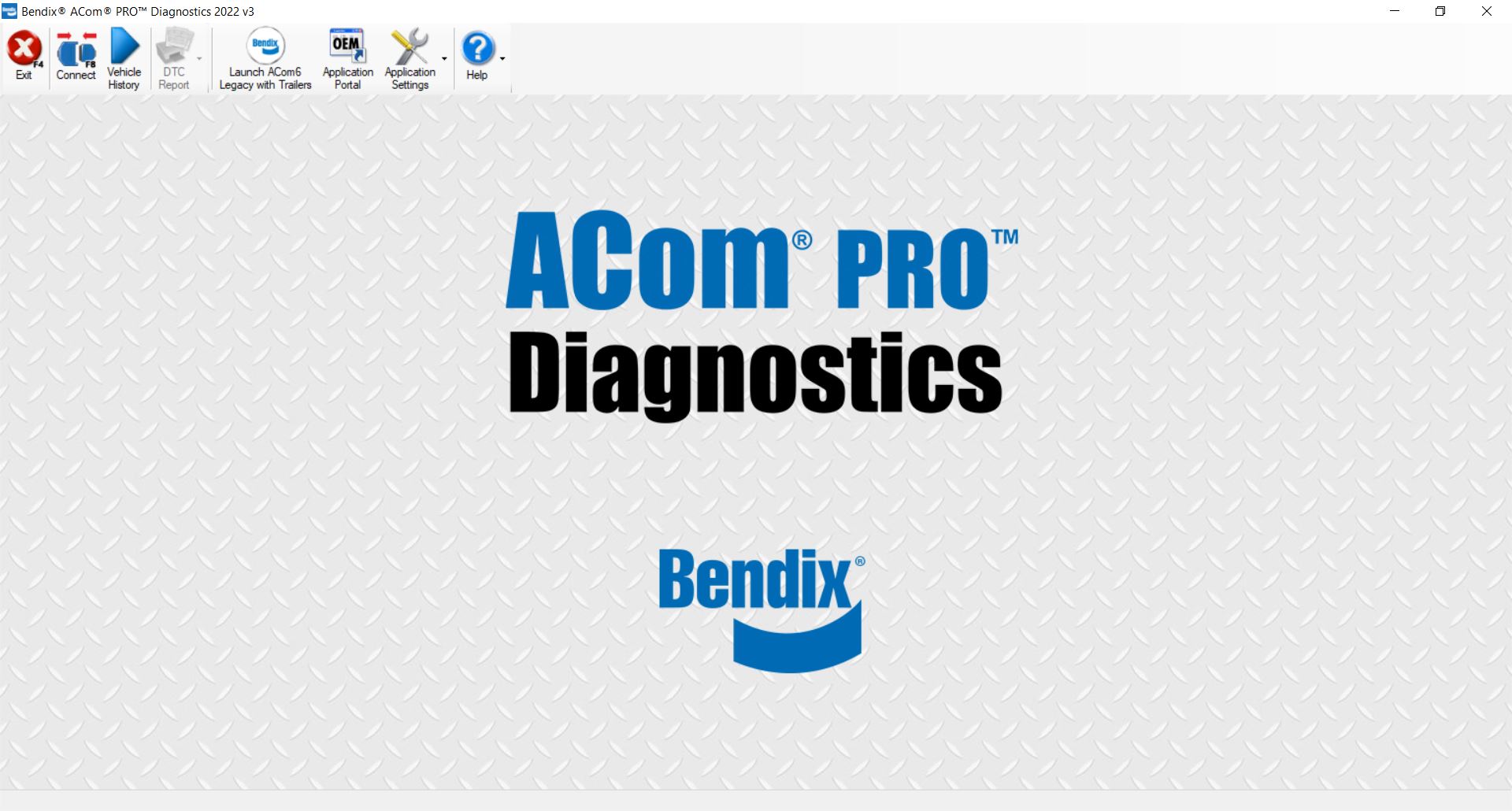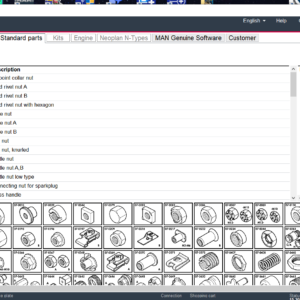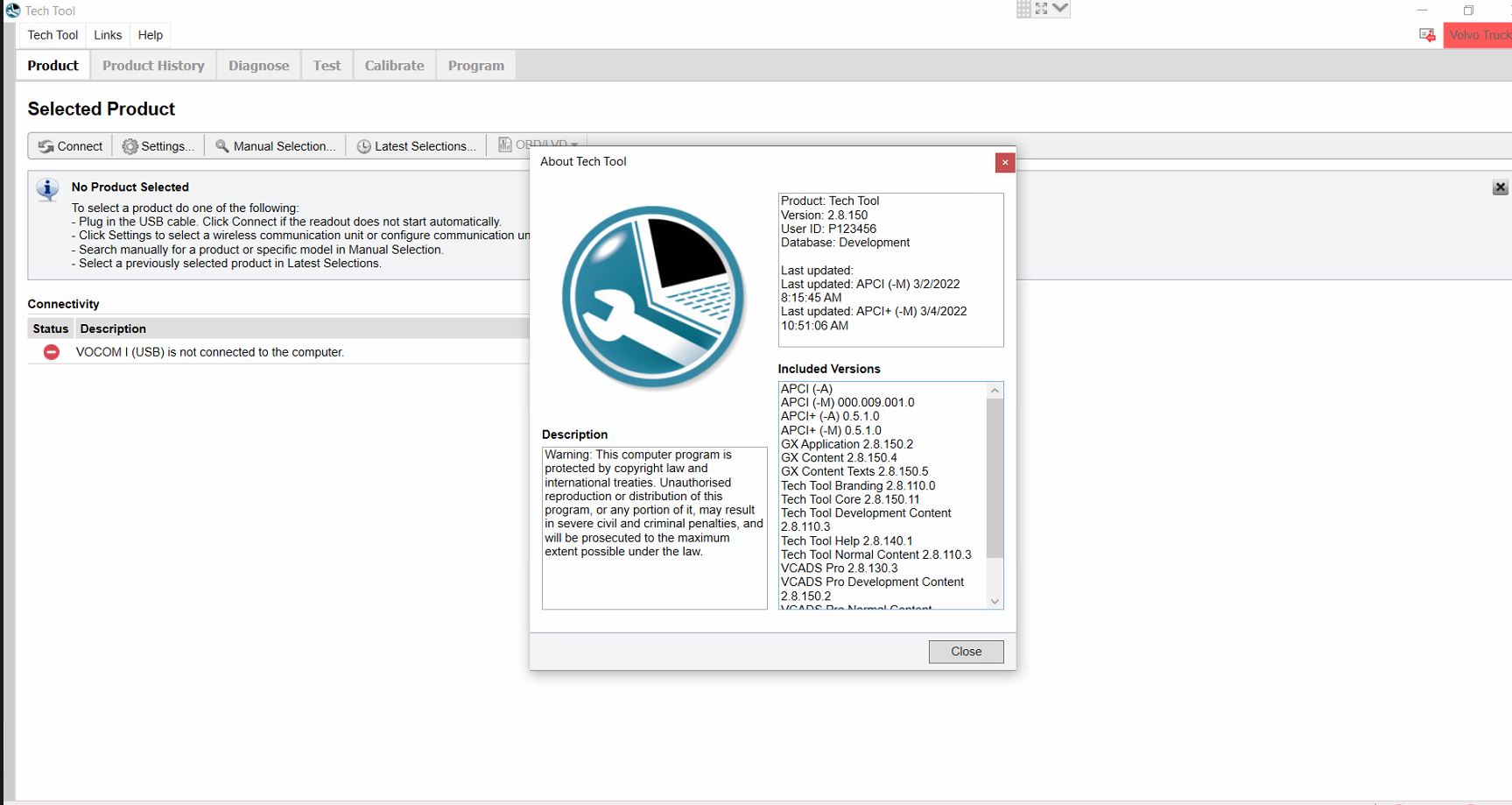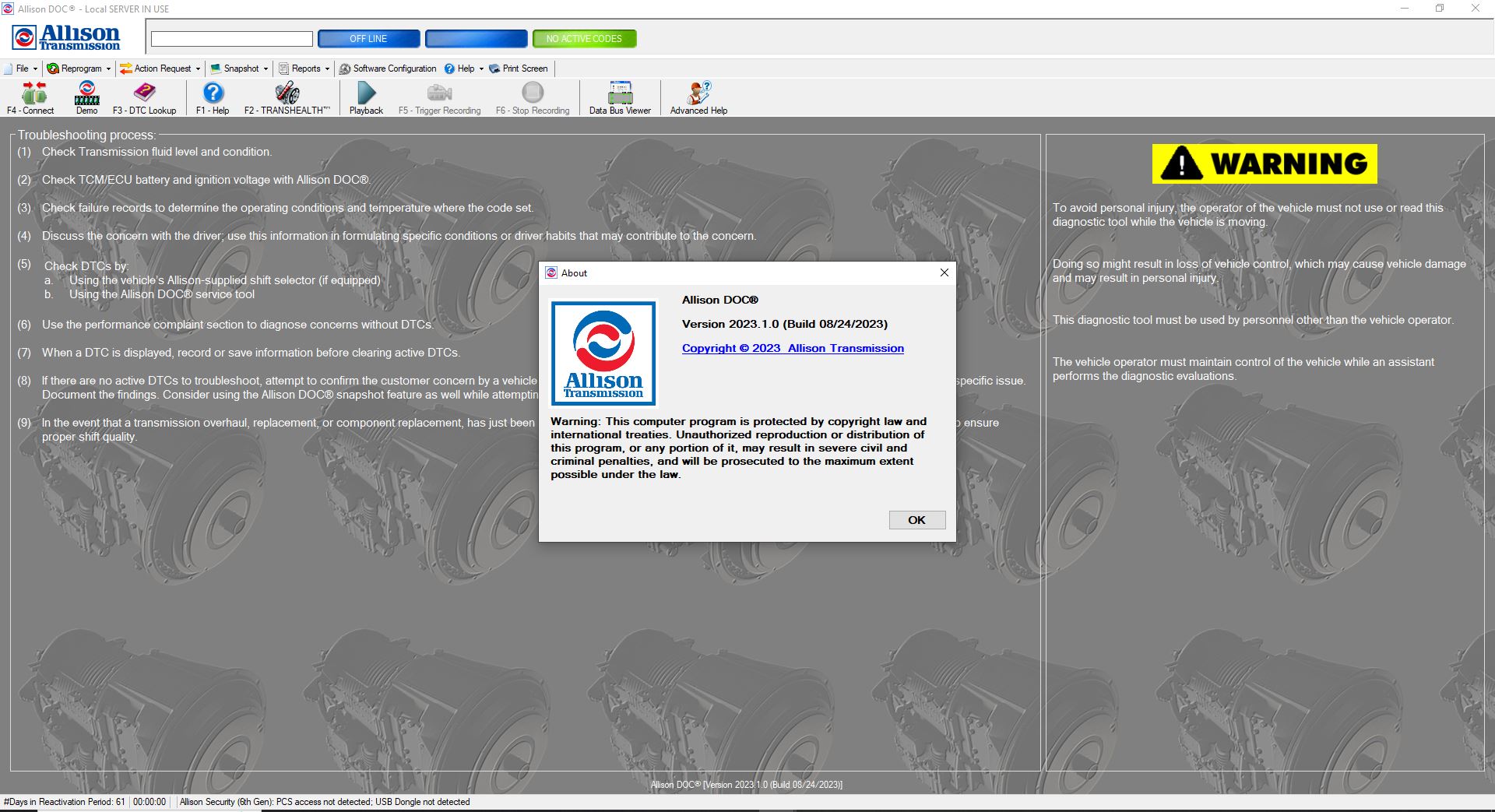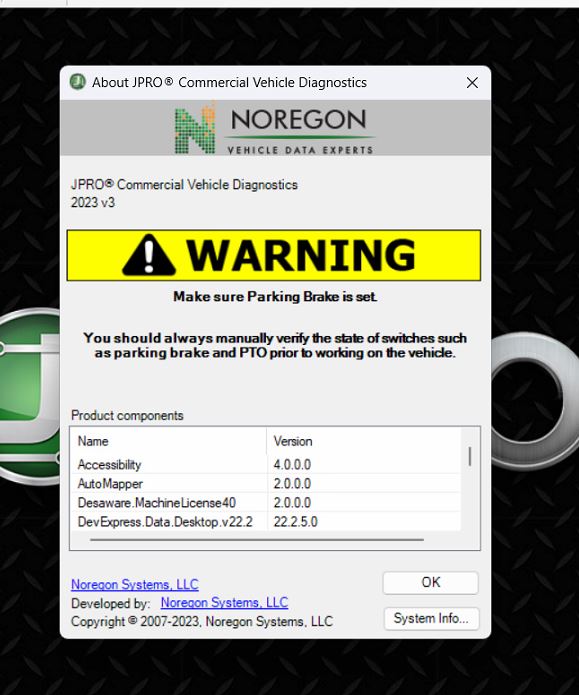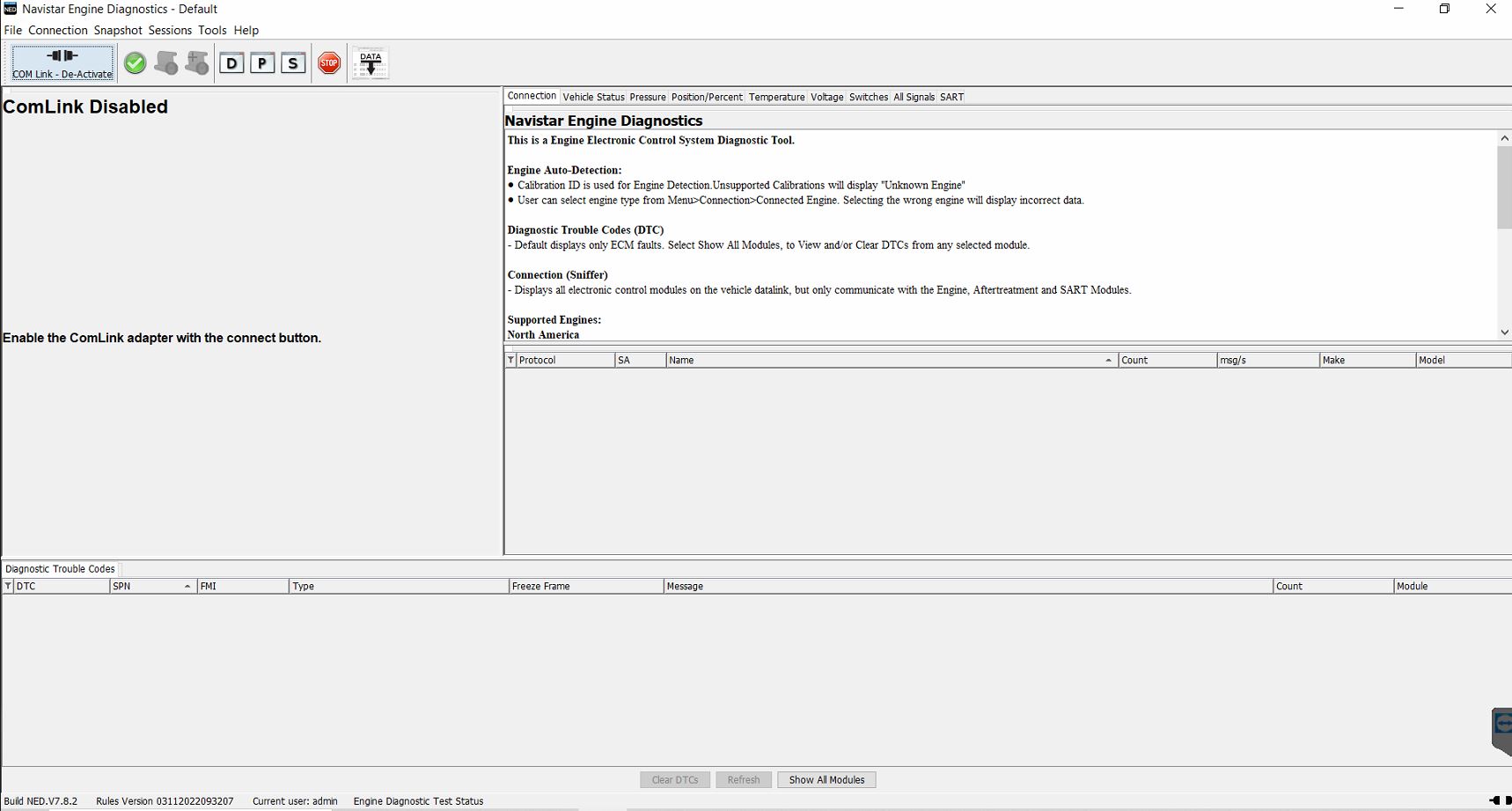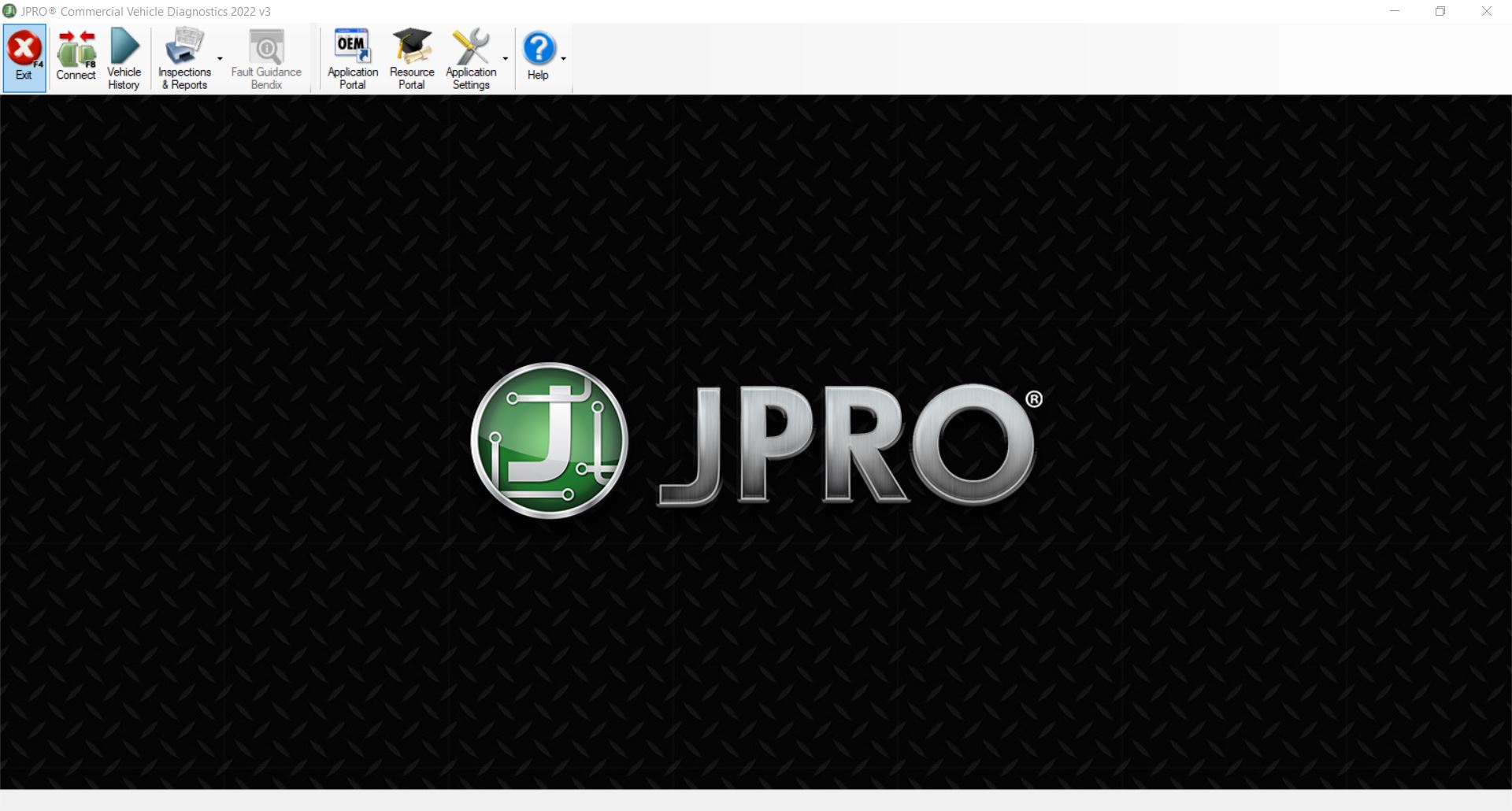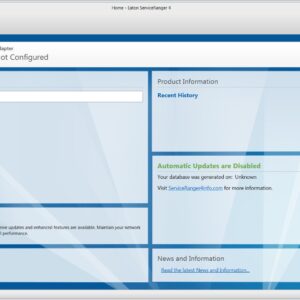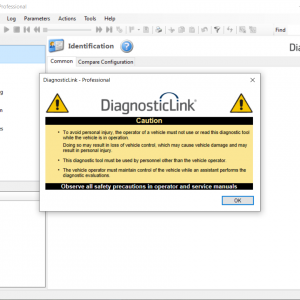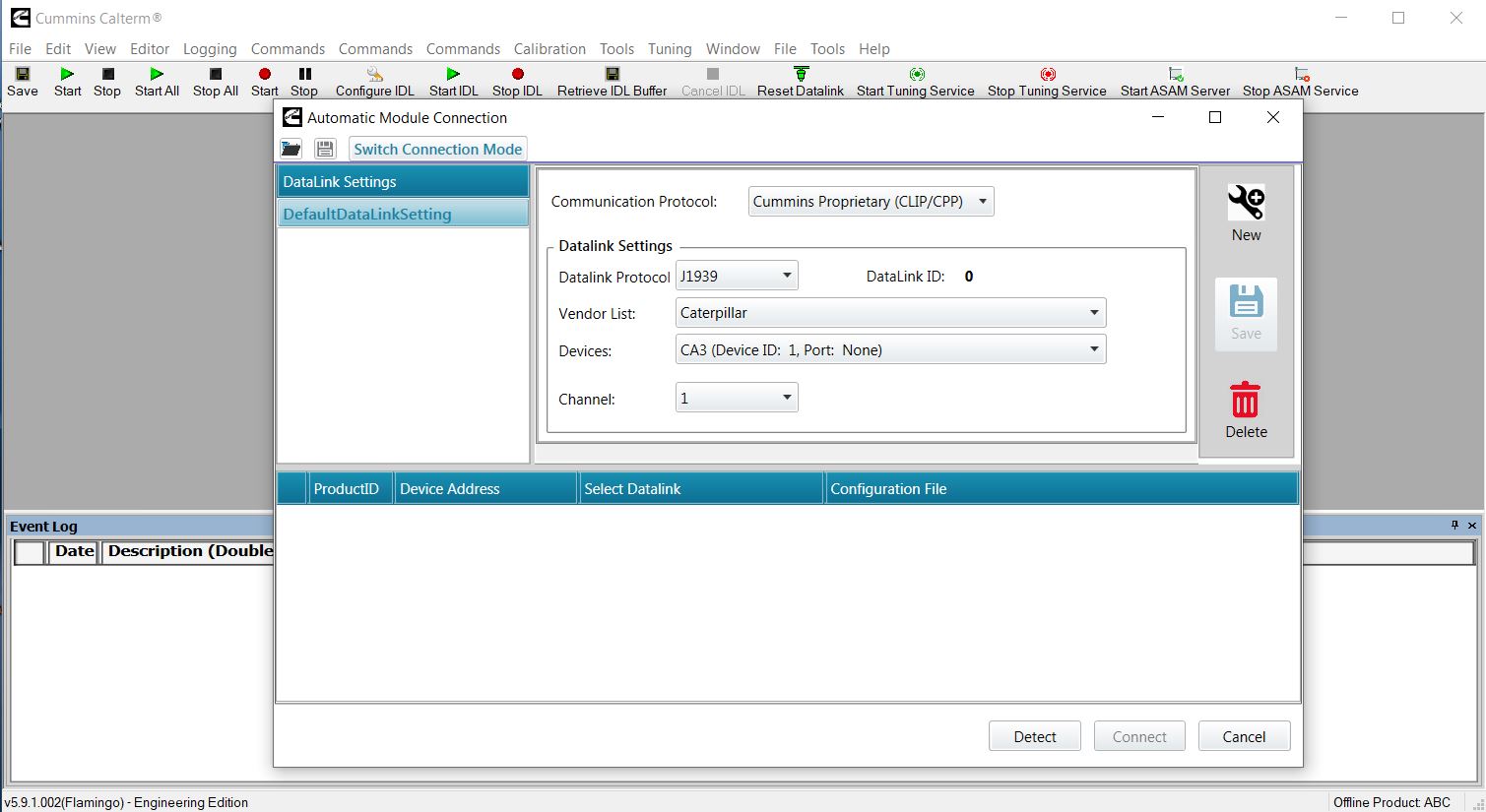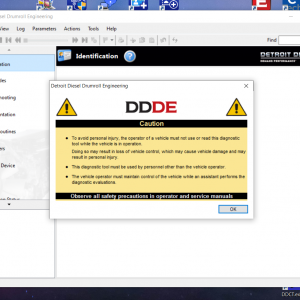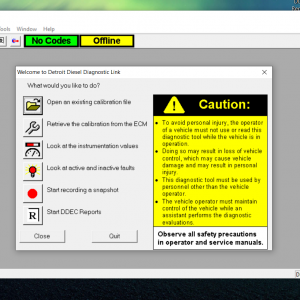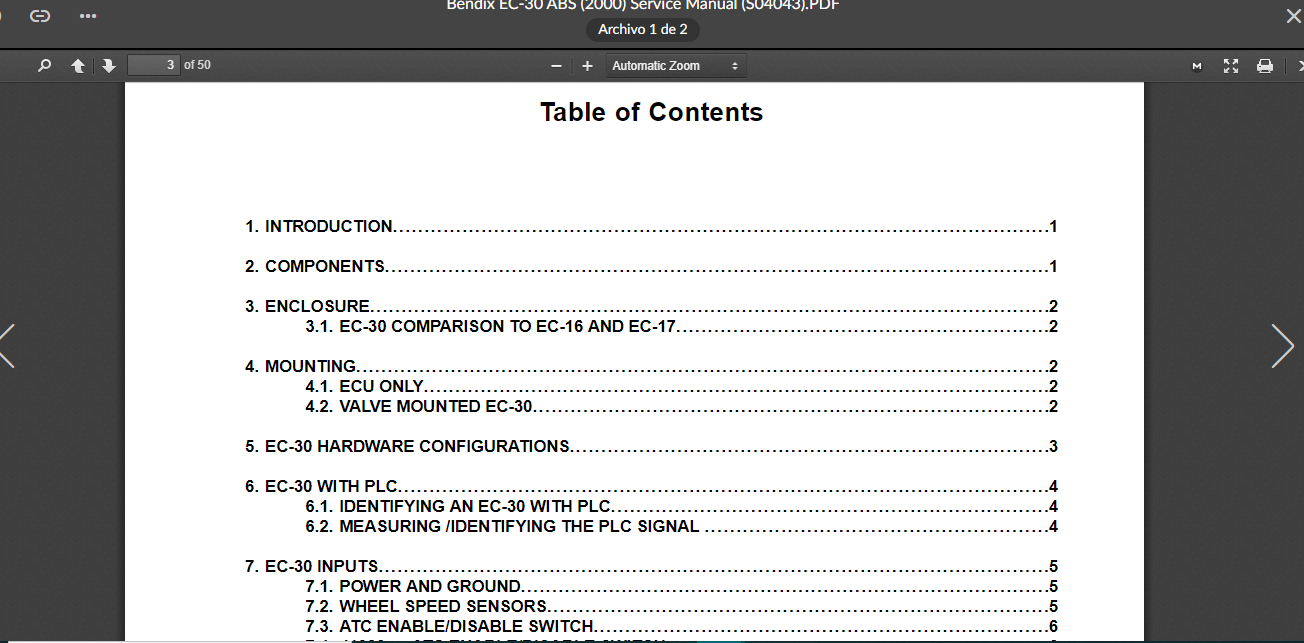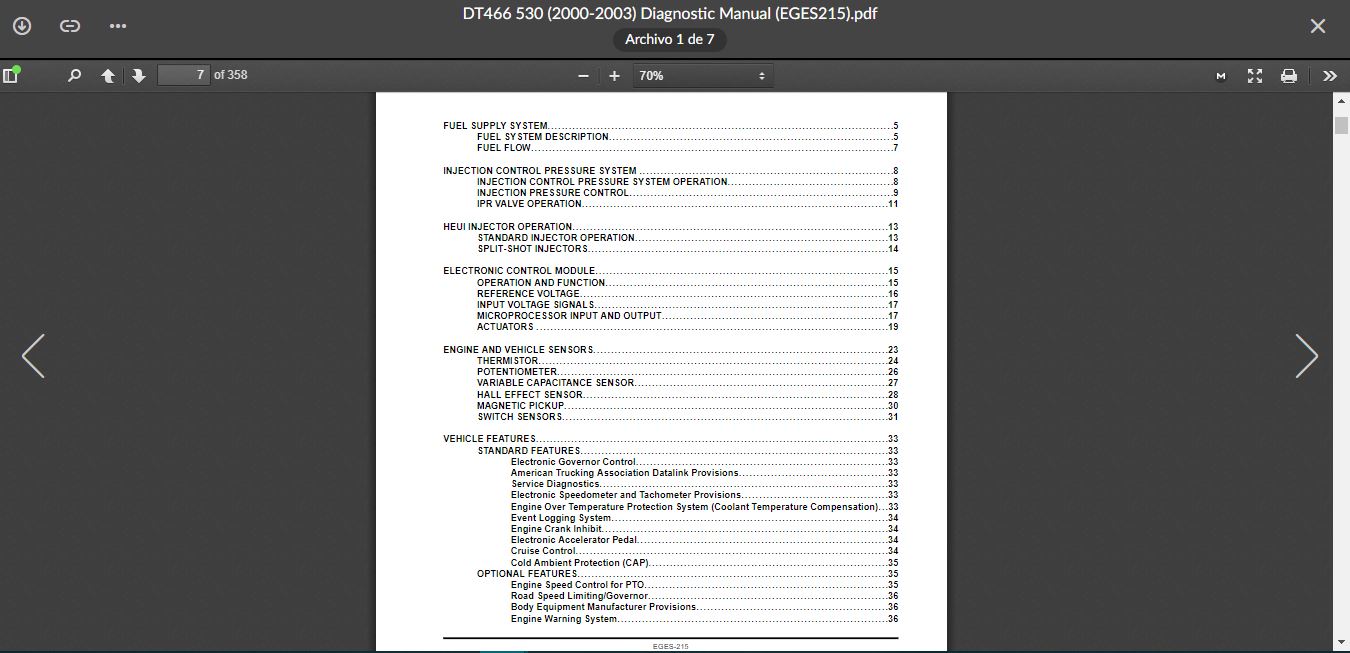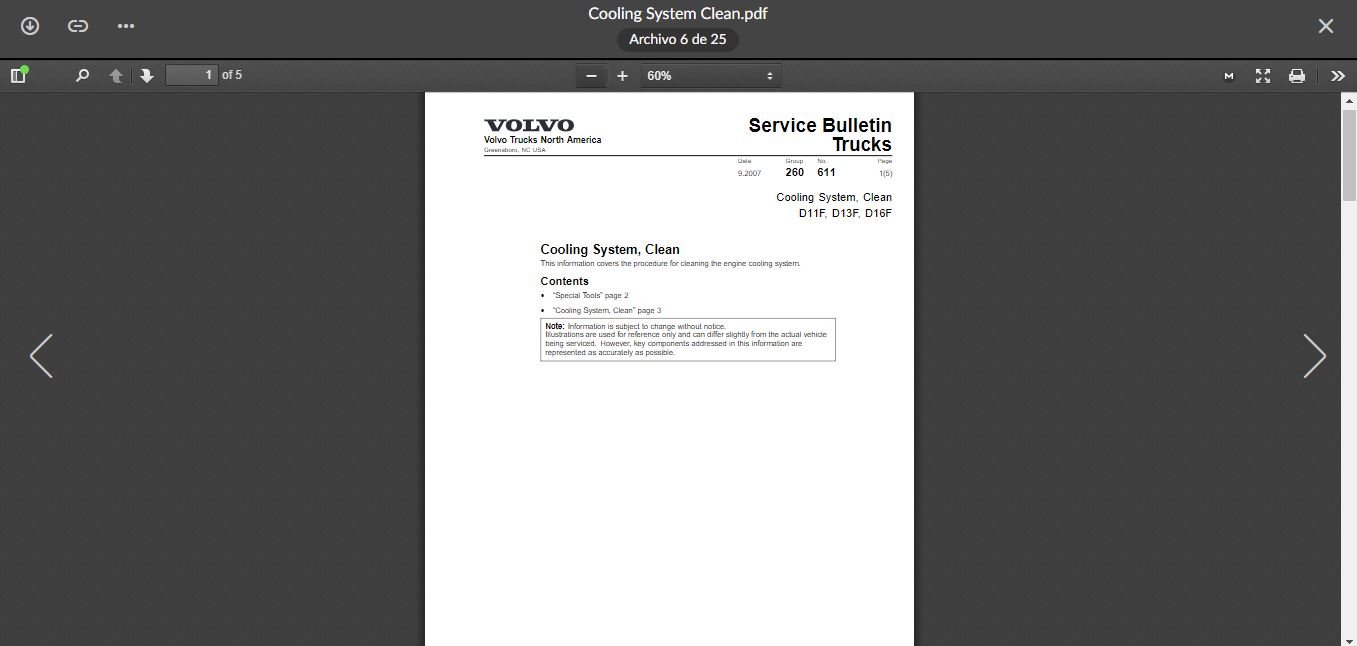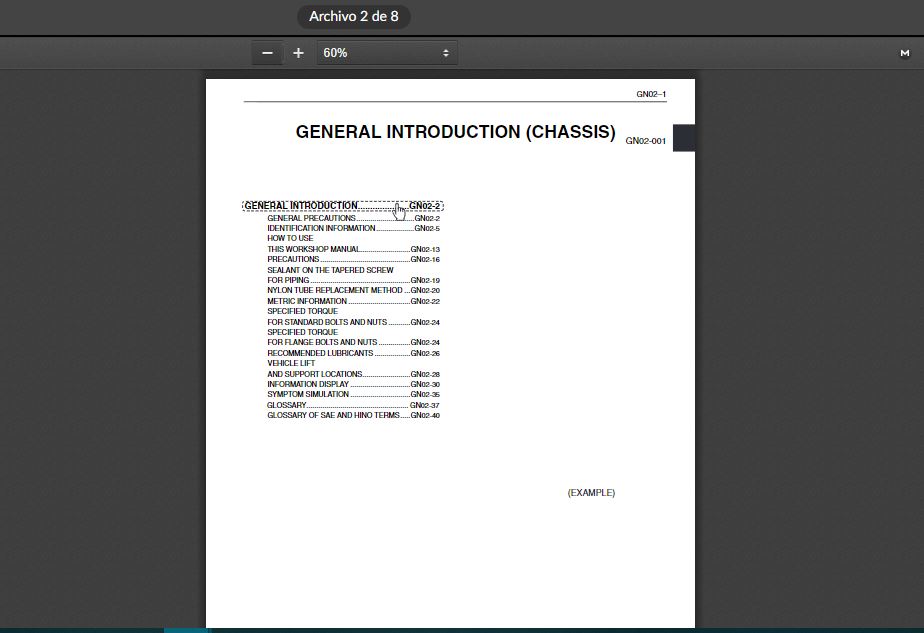PACCAR PX-9 CM2350 (2013-17) Fault Code:3251 PID:S326 SPN:4765 FMI:16 Aftertreatment Diesel Oxidation Catalyst Intake Temperature – Data Valid But Above Normal Operating Range – Moderately Severe Level
Reason:
Aftertreatment Diesel Oxidation Catalyst Intake Temperature – Data Valid But Above Normal Operating Range – Moderately Severe Level. The diesel oxidation catalyst intake temperature sensor reading has exceeded the maximum temperature limit.
Effect:
Progressive power and/or speed derate increasing in severity from time of alert. If the Engine Protection Shutdown feature is enabled, the engine will shut down 30 seconds after the red STOP lamps starts flashing.
Circuit Description:
The aftertreatment diesel particulate filter temperature sensor module is a smart device that communicates with the engine control module via the J1939 data link. The aftertreatment diesel partculate filter temperature sensor module performs its own internal diagnostics and reports malfunctions back to the engine control module using the J1939 data link. The aftertreatment diesel particulate filter temperature sensor module is used to measure the aftertreatment diesel oxidation catalyst intake temperature, aftertreatment diesel particulate filter intake temperature, and aftertreatment diesel particulate filter outlet temperature. The temperature probes are permanently attached to the aftertreatment diesel particulate filter temperature sensor module and can not be replaced individually.
Component Location:
The aftertreatment diesel oxidation catalyst intake temperature sensor is located in the aftertreatment system. It is located at the intake of the aftertreatment catalyst. Refer to the OEM service manual.
Conditions for Running the Diagnostics:
This diagnostic runs continuously when the engine is running and active regeneration of the aftertreatment diesel particulate filter is not occurring.
Conditions for Setting the Fault Codes:
The Engine Control Module (ECM) detected the temperature at the diesel oxidation catalyst intake was greater than 687°C [1269°F] for 60 seconds.
Action Taken When the Fault Code is Active:
1) The ECM illuminates the red STOP ENGINE lamp immediately after the diagnostic runs and fails.
2) A default value for the aftertreatment diesel oxidation catalyst intake temperature sensor reading is used.
3) Active and stationary regeneration of the diesel particulate filter will be disabled.
4) The engine will be shut down if the Engine Protection Shutdown feature is enabled.
Conditions for Clearing the Fault Code:
1) To validate the repair, perform a key cycle, start the engine and let it idle for 1 minute.
2) The fault code status displayed by INSITE™ electronic service tool will change to INACTIVE immediately after the diagnostic runs and passes.
3) The ECM will turn off the red STOP ENGINE lamp immediately after the diagnostic runs and passes.
4) The Reset All Faults command in INSITE™ electronic service tool can be used to clear active and inactive faults, as well as extinguish the MIL for OBD applications.
Shop Talk:
This fault code is logged when the ECM has detected a high temperature condition in the aftertreatment system and active regeneration of the aftertreatment diesel particulate filter is not occurring. The fault code indicates that a secondary fuel source is entering the aftertreatment system and is creating a temperature increase across the aftertreatment diesel oxidation catalyst and/or aftertreatment diesel particulate filter.
The aftertreatment system must be inspected after making the appropriate repair outlined in this fault code troubleshooting tree. Progressive damage to the aftertreatment system may have occurred. Remove the exhaust aftertreatment system from the vehicle to inspect it for potential damage and reuse. Refer to the OEM service manual.
Reference the appropriate OEM wiring diagram when troubleshooting circuits that utilize wiring supplied by the OEM.
Possible Causes:
1) Excessive engine oil or diesel fuel being introduced into the exhaust system from the engine
2) A damaged engine fuel injector causing unburned diesel fuel to enter the exhaust system
Related
-
premium volvo tech tool update 2.8.150 diagnostic software 1pc
Trucks software $150.00Rated 0 out of 5
-
CAT Engine Reprogramming Tool for flash programming C1.8, C2.4, C3.8 & C3.3B + Guide
CAT $50.00Rated 0 out of 5 -
Scania SDP3 2.48.6 Diagnosis & Programming for VCI 3 VCI3 without Dongle
Scania $30.00Rated 0 out of 5 -
Eaton Service Ranger 4.9 Engineering 4.9 [05.2021] Engineering Level ( 1 PC )
Eaton $67.00Rated 0 out of 5 -
Volvo Intermediate Storage File Encryptor/Decryptor (Editor) VISFED 0.3.2
Trucks software $35.00Rated 0 out of 5
Related products
-
Allison 1000 & 2000 Gen 4 Fault Codes: P0875 Transmission Reverse Pressure Switch Circuit Malfunction
1000 & 2000 Gen 4 $50.00Rated 0 out of 5 -
Allison 1000 & 2000 Gen 4 Fault Codes: P0876 Transmission Reverse Pressure Switch Circuit Stuck Open
1000 & 2000 Gen 4 $50.00Rated 0 out of 5 -
Allison 1000 & 2000 Gen 4 Fault Codes: U1301 J1850 (Class 2) Serial Data Communication Link Low
1000 & 2000 Gen 4 $50.00Rated 0 out of 5 -
Allison 1000 & 2000 Gen 4 Fault Codes: P2810 Solenoid G Electrical
1000 & 2000 Gen 4 $50.00Rated 0 out of 5 -
Allison 1000 & 2000 Gen 4 Fault Codes: P0870 Transmission Pressure Switch Solenoid E Circuit
1000 & 2000 Gen 4 $50.00Rated 0 out of 5 -
Allison 1000 & 2000 Gen 4 Fault Codes: P0873 Transmission Pressure Switch Solenoid E Circuit High
1000 & 2000 Gen 4 $50.00Rated 0 out of 5 -
Allison 1000 & 2000 Gen 4 Fault Codes: U1064 J1850 (Class 2) TBC Controller State of Health Failure
1000 & 2000 Gen 4 $50.00Rated 0 out of 5 -
Allison 1000 & 2000 Gen 4 Fault Codes: P1688 Unmanaged Engine Torque Delivered To TCM Signal
1000 & 2000 Gen 4 $50.00Rated 0 out of 5 -
Allison 1000 & 2000 Gen 4 Fault Codes: U0032 J1850 (Class 2) Serial Data Communication Link High
1000 & 2000 Gen 4 $50.00Rated 0 out of 5 -
Allison 1000 & 2000 Gen 4 Fault Codes: U2104 CAN Bus Reset Counter Overrun
1000 & 2000 Gen 4 $50.00Rated 0 out of 5 -
Allison 1000 & 2000 Gen 4 Fault Codes: P1892 Throttle Position Sensor Pulse Width Modulation (PWM) Signal High Input
1000 & 2000 Gen 4 $50.00Rated 0 out of 5 -
Allison 1000 & 2000 Gen 4 Fault Codes: U1041 J1850 (Class 2) ABS Controller State of Health Failure
1000 & 2000 Gen 4 $50.00Rated 0 out of 5 -
Allison 1000 & 2000 Gen 4 Fault Codes: P0123 Pedal Position Sensor Circuit High Voltage
1000 & 2000 Gen 4 $50.00Rated 0 out of 5 -
Allison 1000 & 2000 Gen 4 Fault Codes: P0872 Transmission Pressure Switch Solenoid E Circuit Stuck Closed
1000 & 2000 Gen 4 $50.00Rated 0 out of 5
-
SERVICE MANUAL International Engines DT466 & DT530 (2001-2003) C
INTERNATIONAL ENGINES $31.00Rated 0 out of 5


